Every Individual Is A Miracle Just Being Alive, So Why Do We Fight, Hate And Kill One Another?
Lynne Namka, Ed. D. Talk, Trust and Feel Therapeutics Tucson, Arizona 85739 Runs the Website https://lynnenamka.com
Most of the time we are unconscious of what we do and say, however with a few skills and some understanding we can do better. Lynn’s site is packed with quick read posts and resources to achieve this. Check her out and see if her material can help you or someone you love.
The Practice of Mindfulness is also very Helpful. Remember It Is Usually Not About You.
Depeche Mode wrote a song in the 80’s titled People Are People and the Lyrics are:
People are people, so why should it be
You and I should get along so awfully
People are people, so why should it be
You and I should get along so awfullySo we’re different colours and we’re different creeds
And different people have different needs
It’s obvious you hate me though I’ve done nothing wrong
I’ve never even met you, so what could I have doneI can’t understand
What makes a man
Hate another man
Help me understandPeople are people, so why should it be
You and I should get along so awfully
People are people, so why should it be
You and I should get along so awfullyAnd now you’re punching and you’re kicking and you’re shouting at me
I’m relying on your common decency
So far, it hasn’t surfaced but I’m sure it exists
It just take a while to travel from your head to your fistI can’t understand
What makes a man
Hate another man
Help me understandPeople are people, so why should it be
You and I should get along so awfully
People are people, so why should it be
You and I should get along so awfullyI can’t understand
What makes a man
Hate another man
Help me understandI can’t understand
What makes a man
Hate another man
Help me understandI can’t understand
What makes a man
Hate another man
Help me understandI can’t understand
What makes a man
Hate another man
Help me understandI can’t understand
What makes a man
Hate another man
Help me understandI can’t understand
What makes a man
Hate another man
Help me understand
Source: Musixmatch
Songwriters: Martin Gore / Martin Lee Gore
Heal Abandonment Issues
Healing the Psychic Wounds of Feeling Separate and Abandoned
Lynne Namka, Ed. D.
Loss is universal. We humans do experience loss and out of these great feelings of loss and grief we develop ideas about ourselves. The human experience is to want and crave love and connection. Our greatest fears are rejection and being abandoned. For some of us, our basic needs for safety, nurturing, love and being heard and validated were not met when we were infants and children. The fear of being discarded and abandoned happens to us all.
We humans are given “lesson loves” through our interactions with others. We have these lesson loves when people we love disappoint us and leave, causing great anguish and pain and a sense of betrayal. Feeling insecure, rejected and left out gives us major lessons to work through. Loss and anguish help us distinguish those lessons that we are here to work through. When the rift is deep early in life, we can develop issues of lack of trust and fear of intimacy. These make up the psychological lessons of life that we are to learn about and work through. Some call this our karma to address and move through.
Read More Here: https://lynnenamka.com/abandonment/

I Am Willing To Bet A Large Percentage Of People Won’t Notice What Is Being Done To Them.
Happy Healthy Loving Relationships
Partnership Can Become A Loving Art Form of Life
Lynne Namka, Ed. D. Source: https://lynnenamka.com/relationships/
Love is a science. Love is an art. Love is a choice to be made over and over in each moment. To love is to invest in emotional entrepreneurship of you and those beings with whom you surround yourself and become conscious in all your relationships. The decision to become a loving person is the most important investment that you will ever make in your life.
Love is often thought of as feeling or an emotional state but do you realize that love can also be a verb, as well as an act? It can also be an attitude of daily living. Making the decision to be a loving person will bring happiness to others and return to love to you. Love is a way of “Be-ing.” It is an attitude and way of being and interacting with those around you. You have the option of how far open you want your heart to be with the people around you. How you distribute the love that you have within you is again a choice. As the bible tells us in 1 Corinthians 16:14 “Let all that you do be done in love.”
The true meaning of love in romantic relationship is for two mature, independent people to come together in equal partnership to celebrate their growth, both as individuals and as a couple.
“Love consists of this; that two solitudes protect and touch and greet each other,” said the philosopher, Rilke. Spontaneity and authenticity as well as letting go of protective walls are the hallmark of the mature adult. Intimacy can be achieved when the both partners are complete within themselves and are comfortable with their identity and are willing to take risks with their vulnerable feelings.
Mature love is not hearts and flowers and fireworks all of the time. It is about living up to the strength of one’s own values while choosing to be in a partnership. It is the commitment of really being there for another individual while retaining one’s own sense of self. It’s being there during the ins and outs of the relationship. Often is about being willing to be vulnerable and do the hard work of looking deeply within one’s self.
The happy, healthy couple recognizes that they are a unit in which both their relationship and their individuality are important. They have a systems approach, which recognizes each person’s need to grow and change while giving priority to the relationship. There is a commitment to their individual growth as well as their “coupleness.” Loving partners think both in terms of the “we”, as well as their own individual wishes.
They are willing to set boundaries on those actions of their partner that are not in the best interests of the relationship. Loving boundaries start with what relationship researcher John Gottman called a “soft startup.” Speaking softly and wisely when upset about something can defuse defendedness of the partner. “Honey, I noticed that …. is affecting our relationship. Could we talk about this?” spoken in a voice of loving concern is an example of a soft startup. My teacher Virginia Satir said that you can tell a person almost anything if you do it in a loving, conscious way. Sometimes I spend several days getting myself in a loving attitude and finding the right words and correct timing to bring up a point to my husband.
In mature partnerships, communication skills are open and authentic with few double bind messages, which say one thing and mean another. The two people are straight with each other. They remain there for each other expressing their vulnerability, following Pierre Teilhard de Chardin’s definition of love “…. to approach each other center to center.” They own their own feelings and actions and use frequent “I messages.” They stress equality in the relationship, individuality and happiness rather than the need to be in control. They understand that conflict is inevitable so they do not try to avoid it but view it as a challenge. They have techniques for conflict resolution and do not allow issues to build up. They continue to work through their own issues of power.
They learn ways to work with their unruly feelings. They learn to recognize their triggers and their defensiveness when feeling threatened. Heart and warmth shut down along with the connected sense of being at one with the world when those grand-slam negative feeling come in. Their coping style in dealing with stress is based on negotiation and problem solving, not defensiveness and withdrawal. They choose to lay down their armor of war and address those vulnerable feelings of guilt and shame when they have disrupted the loving energy in the relationship. Love becomes an attitude of how to approach the partner as well as others. Love becomes a verb in action.
We are meant to be in loving relationships, but we have little glitches inside that keep these loving relationships from happening called negative feelings and defenses. If you get defensive, that is a signal that something unresolved keeping you from experiencing love and intimacy. To have a glitch free life, keep working your program.” Feelings are after all, just feelings. Defensive actions are just unhealthy ways that you have learned to deal with threat. You can use them as an opportunity to learn. You can turn consciously to the act of becoming a loving person again and again.
As the Course In Miracles says, “Speak only love, for that is what you are.”
Healthy couples have fun together; they make their fun by finding things they both enjoy and putting them in the schedule. With a strong sense of self, they draw from their unique spiritual nature. They develop meaning in their lives by creating a strong family life and doing some type if volunteer work that helps others.
Psychologist Florence Kaslow writing about the research on mature relationships said, “When one is privileged to be in the company of a compatible couple, their well being and harmony is apparent. They seem to exude tranquility, a kind of inner peace, and liking of their place in the world. They may be quiet or effusive, but their confidence in loving and being loved and valued is unmistakable. They have an unselfconscious desire to please one another because there are sufficient shared paths, goals and values. They understand that when they as a couple benefit, so do each of the partners individually.”
Happy couples are aware of the importance of keeping love alive. If you are in a relationship of a number of years that has lost its sizzle, find ways to recapture the spark. Remember, as David Day Williams said, “Love is a participatory process.” Look at the way that you participate daily. Observe and challenge your unloving acts. Challenge your partner to participate in becoming a loving person as well. Here is a message given to me on my wedding day from my aunt who said her grandmother (my great grandmother) gave her this message on her wedding day: “Have a happy marriage. You can if you try.”
If you are out of love with your partner and headed the wrong way, do a U-turn and get back into it. It is normal for a relationship to have the inns and outs. Find the endearing traits of your partner and why you chose your partner in the first place and focus on those instead of how you’ve been hurt. Court your partner again; bring back the romance.
Specific things you can do: Learn and use the Emotional Freedom Technique and other Energy Psychology techniques that reduce and release your negative feelings of frustration, anger, disgust and contempt. Impatience with your partner’s faults can undermine your loving intention for staying connected. See your relationship as an opportunity to find those unloving aspects of yourself and fix them. Learn thought stoppage and other techniques that help you break into your negative, critical thoughts. Practice active listening and Intentional Dialogue with your loved one. Study and use fair fighting tips to break into your unhealthy ways of reacting when you feel threat. Stop venting about the undesirable aspects of your partner. Take a couples workshop or retreat that teaches communication and intimacy skills. Practice daily kindness and loving gestures. Smile often and flirt with each other. You can fall in love again if you are willing to learn new things about yourself and do the loving acts of connection.
Study forgiveness and practice it daily until you really get it. “Love is an act of endless forgiveness,” said actor Peter Ustinov. Continual forgiveness of yourself and your partner will make you grow into the person who is capable of being loving. Get into couples therapy for a general tune up of your relationship and to resolve any deep, long-standing hurts. Cherish each other. The thing to treasure above all else is loving connections. Belonging is the joy of being human.
Now we have a science of how to stay healthy and heartfelt in your relationships. I’ve listed some of the best scientific information on how to stay connected with your partner and your children on this web site (https://lynnenamka.com/relationships/). The ideas on our web site will help you become a loving person capable of finding and maintaining loving relationships.
Kahlil Gibran said “When there’s someone, one someone, who makes your days brighter, makes your joys greater, makes your heart lighter…Someone, one someone, you want to share with, do everything with, go everywhere with. Someone, one someone you want to live for. You have something called love.”
Find that someone. Be that someone. You can if you keep searching for the best that is in you while releasing that which is not consistent with your loving nature. Remind yourself of Mother Theresa’s quote often: “Do small things with great love.”
I wish you happy, healthy, loving, connected relationships. – Lynne Namka
Get Your Nardar On!
Avoiding Narcissists and Codependency
Unselfish People of the World Unite Against Unbridled Narcissism!
Lynne Namka, Ed. D. Source: https://lynnenamka.com/narcissism/
Nardar is that gut feeling that you get when you notice that someone is doing something to manipulate you or engage in selfish behavior. It is that Narcissistic Radar that you have when someone is more interested in themselves than in you or in making the relationship fair. Nardar is that visceral reaction you get when the hackles go up on your neck because someone is trying to take advantage of you or pull the wool over your eyes. It’s that internal, unconscious device that warns you to watch out.
Unfortunately, if you have grown up with a selfish parent, you might have been sensitized to the condition and see it as normal. The more children are exposed to narcissism, the more they think it’s normal. The more they think giving up their own needs to meet someone else’s is the norm, the more likely they are to engage in it. At some point in their life, they begin to understand that other families act in healthier ways. The stirrings of nardar start at this time. It may take years to figure out that fairness means getting the balance between other people’s needs and your own.
To have a healthy life, develop your nardar. Naïve or gullible thinking can be a detriment to your well being. If you were raised with narcissistic parents or a sibling, you may have your nardar turned off or conversely you may be highly perceptive of others’ selfish tendencies.
When a narcissistic person comes into my environment, I get an automatic reaction which warns me to watch out. My nardar recognizes someone else’s smarmy attitude long before my conscious mind figures it out. My nardar is set pretty high. But then I was partially raised with someone in my family who did great harm to me and I’ve studied and written about narcissism for years.
One key to discovering how low or high your nardar is set is to understand how you were duty trained. You may have been trained to meet the needs of someone else. Giving in to others at the expense of your own self is called codependency. Being expected to meet the needs of a parent is incompatible with your becoming an independent person in your own right. Finish this sentence: “Instead of become an autonomous person as a child, my duty was to _______.” If you were taught that it is your job to jump right in and solve another person’s problem at an inconvenience to yourself, people with narcissistic behavior will seek you out.
Observe your automatic “yes” reaction to another person’s expectation of you. On a visceral level, feel your body starting to shudder while your mind may shift into an “Oh, what do you need? I can help you” mode. On an emotional level, observe how you kick into helping someone else just because it’s expected of you. Your automatic reactions can happen even if they don’t ask-their entitlement attitude is enough for you to go on dumb automatic pilot.
So here are some clues that should send your nardar into high gear humming and warning you that you are not in a relationship of equals:
You Know You’re Dealing with Narcissistic Behavior If…..
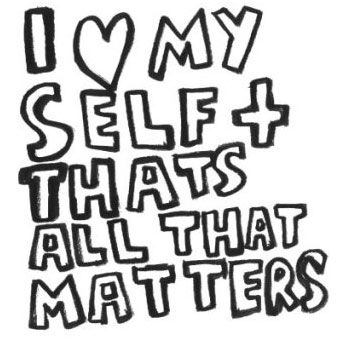 Needy narcissists love an audience and that’s your role. Some are charming, funny and the life of the party. Your function in their life is to listen to whatever they have to say for as long as they want to talk. Your job is to give them applause, admiration or reassurance. If you don’t, they might get anxious and fish for compliments.
Needy narcissists love an audience and that’s your role. Some are charming, funny and the life of the party. Your function in their life is to listen to whatever they have to say for as long as they want to talk. Your job is to give them applause, admiration or reassurance. If you don’t, they might get anxious and fish for compliments.
Controlling narcissists make you feel guilty much of the time and you don’t know why. It’s probably their attitude of “I do what I want and if it inconveniences you, tough!” Or even “I get my way and don’t even notice if you are inconvenienced because you don’t matter.” So no wonder that you feel uneasy when around them. You may not even notice you feel bad inside-your nardar has become almost nonexistent. Of course you may have been so programmed by them or others since childhood that you don’t even know that there are other ways to feel. Question your need to feel extra guilty. It’s just a feeling and if you have too much of it that harms your life, you can work to release it.
They have a “Don’t question me rule. Do as I say.” Some have a “Jump to it right now” rule. You get the glare, the mean look or the long-suffering sigh of “Look what I have to put up with” if you don’t move immediately to do what they want. If additionally they have pefectionistic tendencies, nothing you do will please them. Your work will not be up to their standards and they will criticize and nitpick at you.
Defensive narcissists can’t stand criticism and get their hackles up when corrected when they’ve done something wrong. They become angry to get you to stop calling them on their stuff. They pick fights with you if you don’t agree with what they say. They are willing to yell louder, distort facts to serve their purpose and fight dirty. You can’t win an argument with someone who KNOWS that they are always right.
Remember, you don’t have to attend every argument that you are invited to. You don’t have to participate in conflict with people who do not listen to what you are saying and who try to convince you that you are wrong. Some people get high on fighting and dominating others. Some are thin-skinned and get upset over petty things that others would ignore. They will hold you hostage and try to make you feel guilty by getting upset often if you let them. One man told me that he liked to keep people off balance because it helped him get what he wanted.
They cannot say “I’m sorry” or admit they are wrong. If pushed to apologize, they yell “I’m sorry!” which is not an apology but an act of frustration and anger. Their lack of true remorse shows that they did not understand or care how they have hurt you.
Denial is the narcissist’s middle name-no, that’s wrong, it’s their first name but of course they deny it. The denial and lying functions so they will feel better in the moment. Ignoring or disagreeing with the criticism gets them out of a hot spot so they don’t have to take responsibility to change. They are very protective of their faults and weaknesses and try to hide them from others. To those who have their nardar turned on high, their defenses are as plain as a glaring wart on their nose.
They steal your ideas and take credit for your work. They hint or ask outright for what you have. They believe in the toddler’s rule of “If it is yours, it is mine.” One woman told me that she could never wear something new when she went to visit her mother as her mother would demand to have it and she felt obligated to give it to her to keep the peace.
They have expectations that you will go along with what they want such as you picking up the check or their taking the largest piece of the pie. I know a woman who expects everyone who goes out to lunch with her to pick up the check. They are manipulative and even proud of their ways to get others to give them things. One woman said, “I can get a man to buy me a new pair of expensive shoes on the first date and I don’t even have to put out.” They know how to hint, hold back, ask outright and nag to get their way. One teenager I had just met as a client asked me for twenty dollars. When I said no, he shrugged and said, “Sometimes it works. I always ask new people for money.” He wasn’t even aware how inappropriate it was and his mother didn’t correct him.
They expect you to read their minds and can get angry with you if you get it wrong. One individual insisted that people read his mind and got angry when they could not anticipate his needs and then gave the silent treatment. He could not understand why his wife left him! It’s sad when a person is so defended against knowing their own character defects that they lose their marriage.
The see-how-good-I-am narcissists have an extraordinary need to be perceived as special, wonderful and being a good person and will remind us of this often. It is part of the fantasy that they live even while doing things that are hurtful. Any achievement is magnified and talked about repeatedly. I challenged a man who told me five times in an hour about how good he was as a boss and father, telling him that normal people don’t have to announce their goodness.
Entitled narcissists demand special treatment. Other people’s rules don’t apply to them because deep down they think they are special. This distorted thinking can run from not buying a ticket to get into an event and then bragging about it to stealing the retirement funds of others. They believe they have the right to do whatever pleases them without personal cost. They feel good for a moment and their self-esteem increases when pulling something over on someone. Of course it is false self-esteem but their brain gets a boost in dopamine just the same. Their being hooked on getting what they want activates the same chemicals in the brain that alcohol and drugs do.
Discounting narcissists can’t hear about your pain or suffering as in their deluded mind, their own pain is always worse. If you mention a complaint, they don’t ask you to elaborate but quickly turn the conversation back to themselves. “Okay, enough about you, now let me tell you about me.”
Victim narcissists want you to know how bad they have it. If you mention something bad that happened to you, they have to “one up” you by telling a bigger story of how their bad thing was worse than yours. If you have a headache or bad hair day, they have no empathy for you and tell you how they had it much worse. Their suffering can go into the “Victim of All Times” mode. Overheard at the gym: A young man, shaken and white-faced, was trying to tell about his car being rear-ended on the freeway and the gruesome accident scene he had witnessed. An attractive woman cut him off immediately and went into a five minute OMG dialogue of how she was late for work.
The Drama Kings and Queens thrive on relating their personal crises. If you have something bad happen to you, they turn it around to make it about them. For example, on learning that his wife had cancer, a doctor went into great length to tell how it would affect his life. A couple had been in a car accident where he broke his leg, back and several ribs and had a concussion. She broke her pinky finger and complained loud and long at a party. He, being a secure person, was quiet about his injuries not having the need to be the center of attention. She didn’t notice how people at the party looked at her with surprise and pity as she dramatized her injury.
One form of narcissism is seen in borderline personality disorder. Read Stop Walking on Eggshells: Taking Your Life Back When Someone You Care About Has Borderline Personality Disorder by Paul Mason and Randi Kreger. Reading about the over-emotional, narcissistic traits in Borderline Personality Disorder in general will help you understand the manipulative quality some people have no matter what their diagnosis.
So Back to You
And on and on. You know them. You’ve lived with them. You’ve tolerated them. You were raised with unrealistic expectations. But have you ever sat down and made a list of these unrealistic expectations? Part of your recovery is learning what you are still susceptible to. Are you still catering to certain people?
Check your nardar. Start noticing what your body does when you feel uncomfortable with someone’s behavior. Do you start to feel depleted like your energy has been sucked out of your body? Do your shoulders tense? Do you get a sick feeling in your stomach? Does the hair on your arms rise? Do you find yourself starting to back away ever so slightly? Learn to pick up on these body cues. Learn your own unique nardar signals.
Get past the way you have been brainwashed. Get over your destructive optimism-that pseudo-hope that the person will change. This is magical thinking-your own living in a fantasy world where others in the world do what you want them to do. Go beyond your ego trap thinking “If only….” Put a strong hold on the ideas that flit through your mind, fantasizing that he or she will change or stop doing something hurtful.
Embrace reality-it is where you live-that real world-what’s really there not what your deluded ego tells you. Ask yourself what you have done to enable a selfish person to act badly. What limits and boundaries do you need to set? Make this your new mantra:
“Do not see my being kind to you as my being weak
For I have boundaries.
I know who I am and how I want to be treated.
I will be fair with you and I expect fairness in return.
I know when and how to stand up for myself.
I stand for everyone being responsible and kind with others.”
It’s consumer beware when letting new friends into your life. Put a flashing sign on your forehead: “No Narcissistic People, No Psychopaths Need Apply.”
Proven Anger Management Strategies for Grownups
Author: Lynne Namka, Ed. D. Source: https://lynnenamka.com/anger-management/proven-strategies-for-grownups/
Proven Anger Management Strategies for Grownups
- Who Is the Only Person In the World Who Can Make You Angry?
- A Primer on Anger: Get a Handle on Your Mads
- Positive Anger Skills: Be a Gentle, Loving Person Even When You Are Mad
- Ways To Break Out of Anger
- Whoosh! The One Thirtieth of a Second Reaction of Anger
- Anger Quotes–the High Cost Of Getting Even
- Acceptance Is The Way To Happiness
- Becoming More Thick Skinned — How To Deal With Criticism
- Angry at Yourself? Breaking Out of the Victim Trap
- Letting Go of Anger — Just Poke It!
- Give Misery a Chair To Sit On
- Gandhi’s Nonviolence Ideas
- YOUNG WOMEN WHO ARE ANGRY, READ THIS PAGE! (ANGRY GUYS READ THIS TOO!)
- Irrational Ways of Thinking Which Keeps You Angry
- Layers and Layers of Denial of Anger
- The Drama Triangle – The Three Roles of Victimhood
- Analyze Your Anger and Do It Better Next Time
- OCD Thoughts Be Gone!
- Excuses about Anger, Victim Mentality, Memes and Psychological Reversals
- Threatened? Out Come Your Defense Mechanisms
- The Ultimate Anger Release Technique to Break Into Hatred, Grudges, and Revenge
Learn to Shift Gears Out of Anger Mode
You may always have a tendency to get angry. That’s okay. Anger is a normal emotion but remember it’s what you do with anger that counts. A good rule of thumb is not to use anger to hurt others or yourself. Sometimes you get stuck on a belief that fuels your anger. You may be over focused on a past hurt or betrayal that keeps your gear shifter stuck. Learn the many techniques featured here on this website to help you release stuck anger.
The Lady Who Knows About Mads

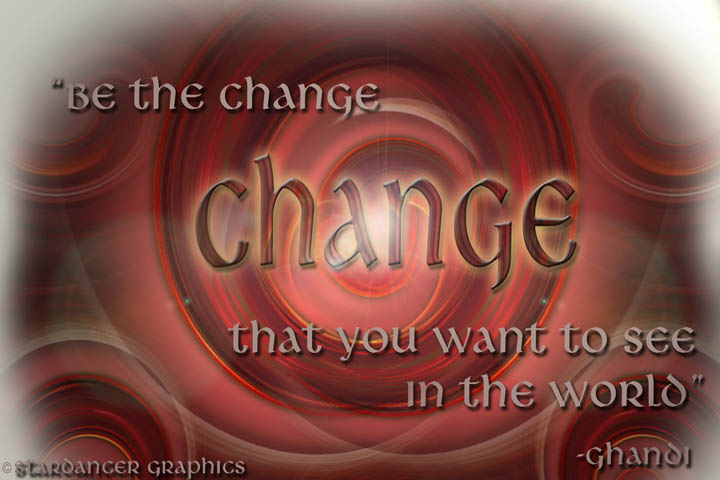
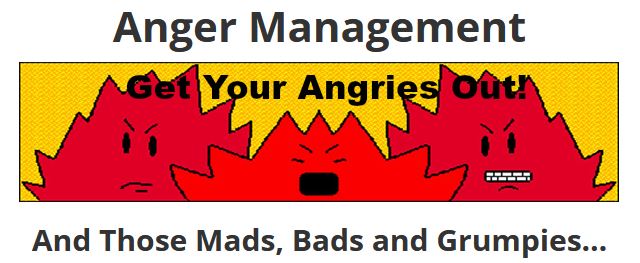

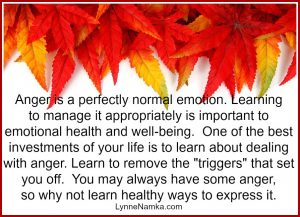




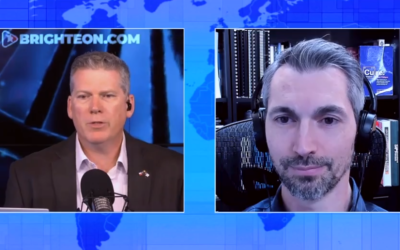

0 Comments